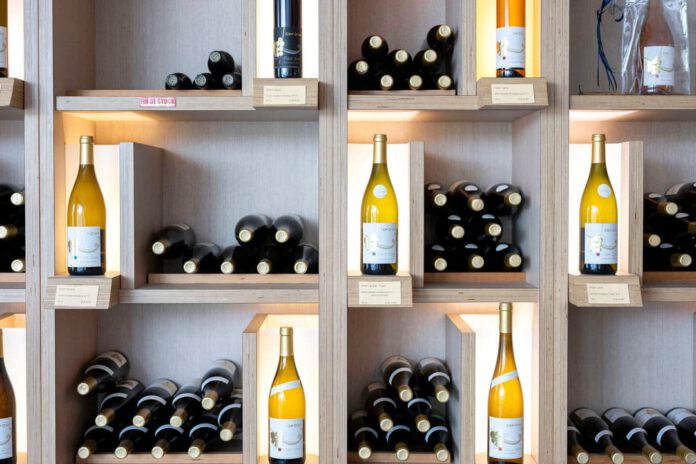The Cep d’Or wine estate is set on a hillside near the village of Hettermillen overlooking the Moselle River with German vineyards facing it on the opposite bank. This Luxembourgish winery is run by Jean-Marie Vesque and his daughter, Lisa. We speak to this family of passionate winemakers.
Photos: Ramunas Astrauskas

An estate created from scratch
In 1994, while working as a winemaker at the Domaines Vinsmoselle cooperative (like his father before him), Jean-Marie Vesque decided it was high time he started making his own wine. So he bought ten hectares of old vines in Stadtbredimus and grubbed them up to plant his first grape varieties. “He really did start from scratch”, says his daughter, who was only three back then and reluctant to join her dad in the vineyard. “I got into it later,” she says, having made wine with her dad for about 10 years now, a job she clearly loves.
In the 30 years since it was set up, the estate has expanded from 10 to 20 hectares of land, and the building has had to be extended. “Our crémant production quickly took off. And since my dad has always matured it on laths for very long periods, we needed a larger storage space,” explains Lisa. “This hadn’t been planned for when the estate was built, as crémant was only just starting to be produced in Luxembourg, and no one knew how it would develop.” Crémant now accounts for 45% of their output.
To accommodate this growth, an outbuilding was built in 2005. A wine shop and tasting room were also added to fully enhance the visitor experience, with a wine bar open every day providing a further setting in which to enjoy a nice drop. “A sommelier is on hand to attend to visitors every day, and I’m also never too far away,” she tells us.


A trailblazing estate
Jean-Marie has been ahead of the curve ever since he established the Cep D’Or estate. In addition to classic grape varieties such as Pinot Gris and Riesling, he charted new territory in the 1990s by planting Pinot Noir and Chardonnay. “That’s what they did in the Champagne region, but not here. He was the first do it in Luxembourg,” explains his daughter. Cep d’Or also makes a Muscat Ottonel, a rarity in Luxembourg and hugely popular among customers.
But that by no means marks the limits of this passionate winemaker’s innovations. He’s the man behind ‘Cuvée 36’, so named because it’s stored on laths for 36 months. When it was first produced, virtually nobody was ageing their crémant so long, but this has now become the norm. “He’s always had loads of ideas and his own unique vision, which could only be achieved by making his own wine,” reveals Lisa.
This same drive for innovation prompted him to plant three grape varieties resistant to cryptogamic diseases in 2015. “Since fewer chemicals were needed to treat these grape varieties, we also decided to certify these parcels as organic,” explains Lisa.
She makes no secret of their aim to gradually go 100% organic, but admits that this comes with a few caveats. “It would need to be feasible in terms of labour, since organic farming is slightly more demanding, and we’d have to adapt our working methods.” So while the Vesque family is up for the challenge, it remains to be seen whether it can be done in practice.

Listening with an open mind
When we ask Lisa whether it’s easy to work with her dad, she smiles and admits that while obviously nothing’s ever perfect, she still considers herself lucky. “My dad’s a very good listener who takes the time to think things over before offering his opinion. Sometimes he says OK to something but suggests a different way of doing it which I hadn’t considered!” Basically, the two of them discuss things constructively.
For instance, her dad carefully considered her suggestion of introducing the Pinot Meunier grape variety for their crémants, a practice common in Alsace but rare in Luxembourg. We both went to the Champagne region to talk to local winemakers and then took advantage of a land consolidation in Stadtbredimus to plant some of these vines two years ago.” Although last year’s crop had to be blended with Pinot Noir due to insufficient yields, Lisa is happy with the result. “The base wine is good and has a distinctive flavour. I’m looking forward to making it this year, hopefully without using a blend.”
You don’t have to be Sherlock Holmes to work out that constant communication is the secret to this relaxed father-daughter working relationship. And that’s not likely to end any time soon, as Jean-Marie Vesque plans to continue tending to his vines for some time to come. “He’s planning to gradually slow down, but he’ll never fully stop working and that suits me fine,” says Lisa. Isn’t it lovely when families get on?

